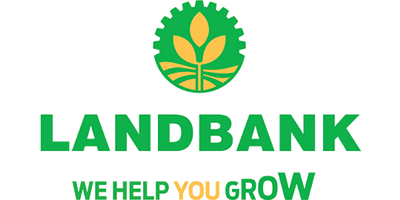
Environmental Due Diligence (EDD) on LANDBANK-financed Projects
Land Bank of the Philippines

The Bank has conducts an average of 336 assessments per year covering 100% of the projects scheduled for environmental performance monitoring. Out of 370 clients’ projects assessed from 2011 to 2013, 94% or 347 projects have implemented at least one environmental program or initiative
INTRODUCTION
LANDBANK’s strong commitment towards sustainable development and environmental protection is anchored on its Vision-Mission Statement, Corporate Environmental Policy and Sustainability Framework and embedded in its operations.In support of this commitment, LANDBANK implements an Environmental Due Diligence (EDD) System wherein it conducts environmental impact assessment and monitoring as a requirement in financing projects. The EDD system was initiated by LANDBANK 20 years ago as part of a requirement for World Bank-assisted projects. In 2004, LANDBANK institutionalized the system for ALL Bank-financed projects. The EDD has three major objectives: to reduce the negative impact of LANDBANK-financed projects to the environment; encourage and strengthen compliance of clients with applicable environmental laws and regulations; and to reduce credit risk for the Bank’s gross loan portfolio. Environmental impacts arising from Bank-financed projects are reviewed to assist loan clients to comply with the different requirements. Compliance to these requirements is monitored and used as basis in measuring their environmental performance and risk rating. Clients are likewise advised on possible mitigating activities to improve the environmental performance of their project.FRAMEWORK AND STRATEGY
The LANDBANK EDD is implemented by 41 LANDBANK Lending Centers across the Philippines covering all financed projects regardless of amount. LANDBANK has also established an Environmental Program and Management Department (EPMD) which conducts the environmental assessment of projects. An Environmental Report for each project is prepared to evaluate impact and identify mitigating activities; determine risk rating and environmental benefits such as eligibility of projects for inclusion under the Clean Development Mechanism (CDM); and assess compliance with environmental laws and regulations.In recognition of their efforts, clients with outstanding environmental practices are given special awards. Eligible projects are also given opportunities to participate in other LANDBANK programs particularly on climate change mitigation or the Carbon Finance Support Facility. What makes the EDD system distinct is its integration in LANDBANK’s credit delivery operations, unlike other Philippine banks which implement EDD on a selective basis, usually only for projects financed thru special or Official Development Assistance (ODA) program funds.
ACHIEVEMENT AND IMPACT
The implementation of EDD at LANDBANK has brought positive results and further improved its credit delivery operations. From 2004 to 2013, the Bank has conducted 3,360 project assessments with an average of 336 assessments per year covering 100% of the projects scheduled for environmental performance monitoring. These contributed to the reduction of credit risk for the Bank’s gross loan portfolio with NO report of LANDBANK-financed projects being closed due to violations of environmental requirements. Another indicator is the improved relationship of LANDBANK with multilateral agencies which resulted to increased allocation of Official Development Assistance funds to LANDBANK. The EDD has also gradually influenced LANDBANK clients to be more environmentally conscious, and bolstered their programs for social responsibility and the exercise of their role as good corporate citizens. Out of the 370 projects assessed from 2011 to 2013, 94% or 347 projects have implemented at least one environmental program or initiative.FUTURE DIRECTION
LANDBANK continuously conducts periodic review of the implementation of its EDD system to be more efficient and consistent with latest issuances of regulatory agencies. Continuing capacity building is also identified as a critical component in the implementation and continual improvement of the Bank’s EDD. In the coming years, LANDBANK intends to incorporate climate change vulnerability assessment (CCVA) in the system. While the EDD minimizes the negative impact of the project to the environment, considering the CCVA in the Bank’s EDD system will assess the potential impacts of the climate change due to natural hazards to the project in order to identify and plan for appropriate mitigating measures. LANDBANK also continues to work closely with its clients and stakeholders to ensure their adherence and support to the Bank’s environmental programs and initiatives.
The Land Bank of the Philippines (LANDBANK) is a leading government financial institution that has a unique social mandate to spur development in the countryside. It is today the largest formal credit institution in the Philippine countryside focused on expanding credit outreach to farmers and fishers, microenterprises and SMEs, rural banks, and agriculture. It is also ranked among the top five universal banks in the country and is the only one present in all 81 provinces in the country.




